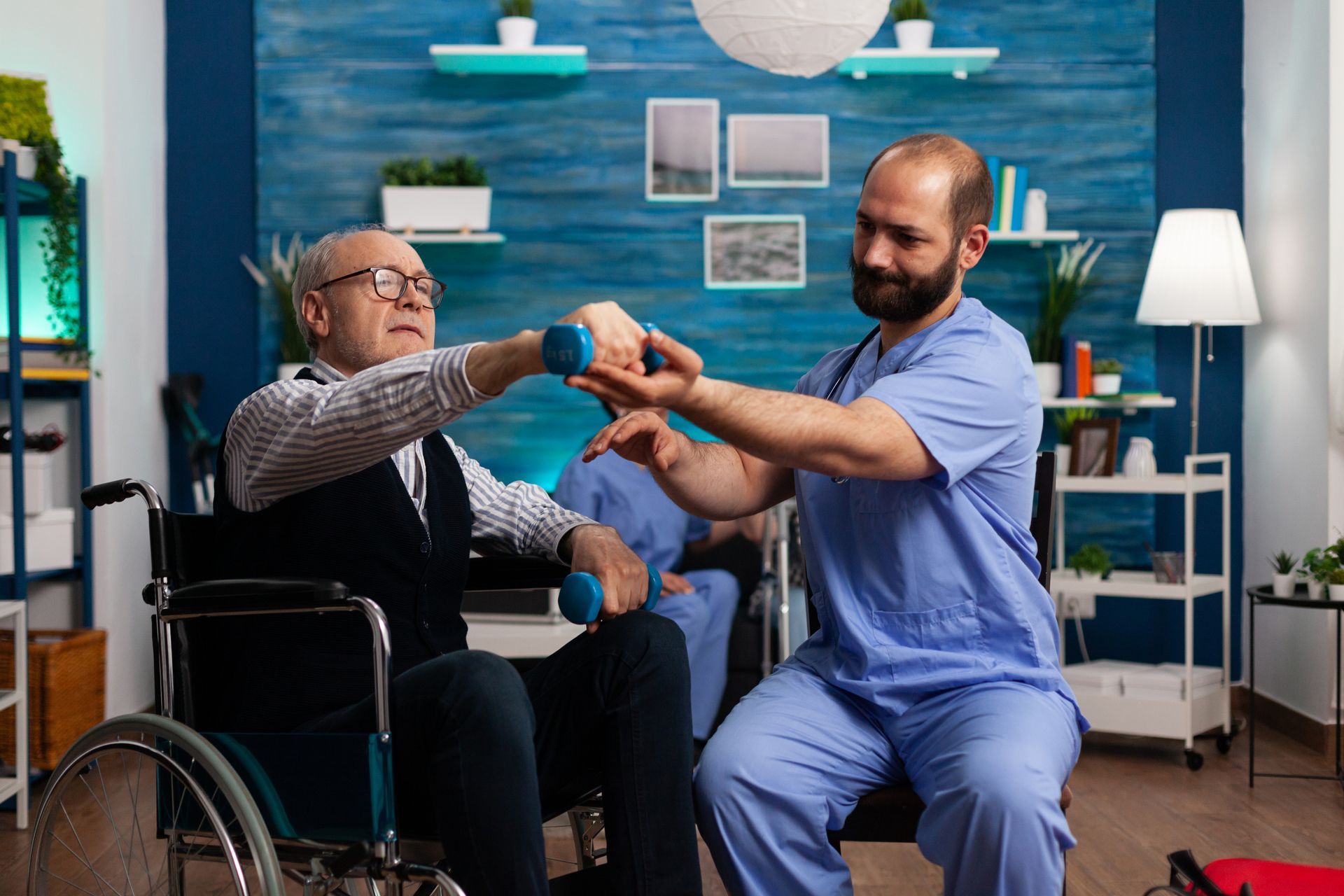A Beginner’s Guide to Concussions and Treatment
Suffering a concussion is no small concern. It can significantly impact a person’s daily function and overall health. Unfortunately, concussions go undetected almost half the time, leaving people suffering unnecessarily or worse— enduring permanent brain damage.
This guide navigates everything you need to know about concussions and the available
concussion treatment that could help expedite recovery.
What is a Concussion?
A concussion is damage to the brain after an individual suffers a traumatic brain injury (TBI). The force of the TBI causes the brain to impact the skull, creating bruising, pulling of nerves, swelling, and microscopic brain cell damage, which may or may not be detachable on a CT scan.
If you suffer a significant blow to the head, you should always seek medical attention rather than risk going without help.
Common Causes
Some people are more prone to concussions than others based on the likelihood of falling injuries. For example, children, teens, and older adults have a higher risk of concussion trauma. However, other causes could affect a person at any age.
They include:
- Sports injuries
- Car accidents
- Explosions
- Physical abuse
- Falls from heights or equipment
Short Term Effects
A concussion results in altered brain function while the brain is healing. Symptoms of concussion vary by severity and can include:
- Headache
- Nausea or vomiting
- Balance problems
- Dizziness
- Fuzzy or blurry vision
Concussion symptoms can last several weeks; however, in more severe cases, they can last for months or longer. Unfortunately, the short-term effects of concussions can be more intense in the initial stages of the injury.
People often make the mistake of returning to normal activities or sports as soon as symptoms dissipate, not realizing their brain is still in the repairing stages of their injury. Further head injuries, even slight ones, can exacerbate the initial damage and bring back symptoms. You should always follow your physician’s instructions to heal from a concussion fully.
Long Term Effects
In addition to short-term effects, concussion symptoms can be ongoing and drastically affect a person’s ability to function. Long-term effects can also include:
- Nervousness or anxiety
- Sleep disturbance
- Difficulty concentrating
- Feeling tired, having no energy
- Sensitivity to light and noise
- Ringing in the ears
While the intensity of the initial injury may lessen over time, that is not to say that the sufferer won’t have ongoing issues related to their concussion.
Work and home life can become challenging to maintain, leaving a person little option but to patiently endure while the body continues to heal. Yet, there are ways to improve symptoms and speed up recovery time in addition to following all your doctor’s orders.
How Physiotherapy Can Help Treat Concussions
As you can see, concussions may be debilitating, especially with repeated occurrences. However, you don’t have to suffer without help.
Physiotherapists utilize specialized exercises to help lessen concussion symptoms by correcting inner ear imbalances, retraining the visual system, and therapy for the neck area. Further, physiotherapy employs several activities to regain strength and provides education for concussion prevention in the future.
Protect Your Brain Health
The sooner you can return to daily activities symptom-free, the better. By lowering your risk of concussion and utilizing the proper healing techniques, you have a greater chance of protecting your brain and minimizing long-term damage.
If you have suffered a concussion and are experiencing unpleasant symptoms, trust none other than the experts at
Healing Haven Physiotherapy in Edmonton, AB. Their friendly therapists have the knowledge and expertise to help alleviate the debilitating after-effects of concussion and get you back to living your best life.
Don’t let a concussion keep you down! Instead, schedule your appointment
online or by calling
587-735-6272 today!










